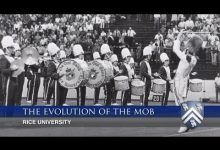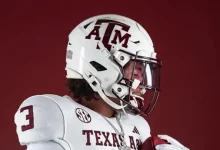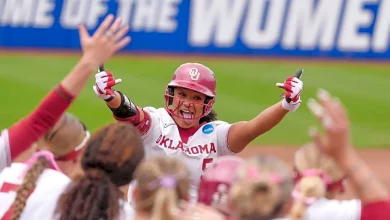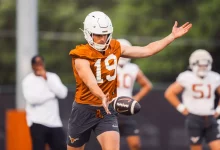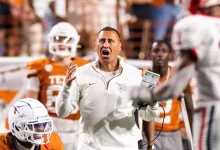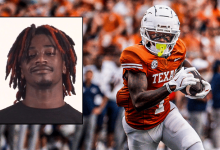Nezza reveals her Spanish rendition of the U.S. anthem at Dodger Stadium was done against the team’s wishes, The Athletic reports.
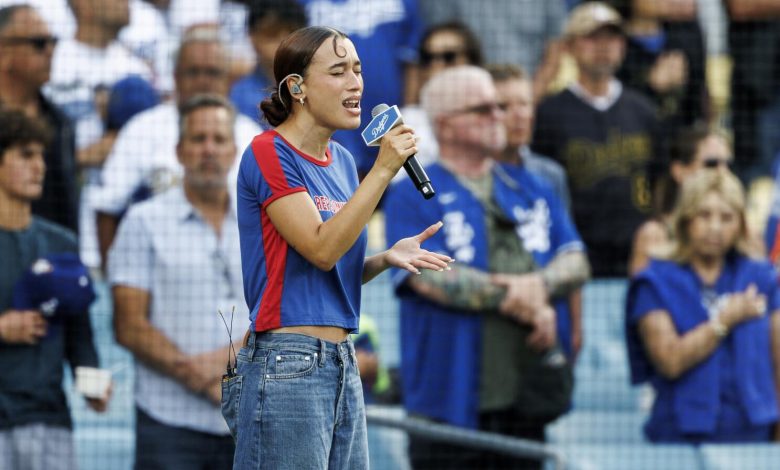
In a surprising revelation that has stirred conversations about culture, tradition, and sports entertainment, Nezza, a well-known singer, disclosed that her decision to perform the U.S. national anthem in Spanish at Dodger Stadium was made against the wishes of the Los Angeles Dodgers organization. This news, first reported by The Athletic, has sparked a wide-ranging discussion about the intersection of identity, inclusion, and protocol in major sporting events.
Nezza’s Spanish rendition of “The Star-Spangled Banner” during a high-profile Dodgers game captivated fans, showcasing both her vocal talent and the growing diversity of baseball’s fanbase. However, the disclosure that the Dodgers had reservations about this performance reveals the complexities behind such cultural moments in professional sports.
The Moment: Nezza’s Spanish Anthem Performance
Nezza’s performance took place during a packed game at Dodger Stadium, a venue known for its passionate fans and deep ties to the city of Los Angeles. The Dodgers, representing a multicultural city with a significant Hispanic population, often incorporate elements that celebrate this diversity.
Her rendition was both a bold and heartfelt tribute, blending the traditional anthem with the rhythms and inflections of the Spanish language. For many fans, it was a powerful and emotional experience, reflecting the bilingual reality of Southern California.
Social media quickly responded with enthusiasm and admiration, praising Nezza’s courage and artistry. Her version resonated particularly with Spanish-speaking fans who felt represented in a moment traditionally dominated by English performances.
The Dodgers’ Position: A Clash of Tradition and Innovation
Despite the positive public reaction, Nezza revealed in an interview that the Dodgers organization had not fully supported the decision beforehand. According to The Athletic, the team preferred the anthem to be performed strictly in English, adhering to longstanding MLB tradition.
The Dodgers’ hesitation underscores a broader tension in sports between maintaining tradition and embracing evolving cultural expressions. National anthems at sporting events have historically been performed in English, seen as a unifying gesture reflecting national identity.
However, with baseball’s fanbase becoming increasingly diverse, teams face pressure to reflect the identities and languages of their communities. The Dodgers, situated in a city with one of the largest Hispanic populations in the U.S., have often tried to balance these dynamics through bilingual announcements and Hispanic heritage celebrations.
Nezza’s Perspective: Representation and Respect
Nezza expressed that her intention was to honor both the United States and the Hispanic community that has passionately supported the Dodgers for decades. Performing the anthem in Spanish was her way of bridging cultural identities and fostering inclusivity.
“I wanted to celebrate the rich cultural tapestry of our city and our team’s fanbase,” Nezza said. “Singing the anthem in Spanish is a way to say that everyone belongs, that patriotism can be expressed through multiple languages, and that diversity strengthens us.”
She acknowledged the Dodgers’ concerns but emphasized the importance of evolving traditions to reflect the realities of modern America.
Fan Reactions: Support and Criticism
The news of Nezza’s performance and the team’s initial reservations sparked mixed reactions among fans and the broader baseball community.
Supporters applauded the move as a progressive step toward inclusivity. Many highlighted that the United States is home to millions of Spanish speakers, and their representation in national moments like anthem performances is both appropriate and empowering.
Some fans shared personal stories of how hearing the anthem in Spanish made them feel more connected to the game and the country.
Conversely, some critics argued that the national anthem should remain in English to preserve tradition and national unity. They contended that the anthem’s purpose is to symbolize the country as a whole, and altering it linguistically could detract from its unifying effect.
The Broader Cultural Context
Nezza’s performance sits within a larger cultural dialogue about language, identity, and inclusion in the U.S. This conversation extends beyond sports into politics, education, and public life.
Spanish is the second most spoken language in the country, and Hispanic Americans constitute a significant and growing demographic. Efforts to incorporate Spanish into public ceremonies and events often face resistance, reflecting deeper debates about assimilation and multiculturalism.
Sports, as a reflection of society, often become a battleground for these cultural tensions. Teams and leagues have increasingly tried to embrace diversity through multilingual initiatives, Hispanic heritage nights, and outreach programs.
MLB’s Approach to Diversity and Inclusion
Major League Baseball has been making strides to engage Hispanic fans and players through various initiatives. Bilingual broadcasts, Spanish-language marketing, and cultural celebrations have become commonplace.
Yet, when it comes to the national anthem, the league has traditionally maintained English as the standard language for performance. Nezza’s Spanish rendition challenges this norm and raises questions about the league’s flexibility in accommodating diverse expressions of patriotism.
The Dodgers organization’s hesitation, therefore, reflects not just internal preferences but also the wider MLB stance on maintaining traditional protocols.
Potential Implications for Future Anthem Performances
Nezza’s revelation and the ensuing conversation could pave the way for greater acceptance of multilingual anthem performances in baseball and other sports. It invites teams and leagues to reconsider how tradition can coexist with cultural inclusivity.
Some sports organizations in the U.S. have experimented with bilingual or alternate language renditions of their anthems, with varying degrees of acceptance.
The Dodgers, given their unique demographic and cultural environment, may be at the forefront of evolving these practices. Fans and cultural advocates may push for more frequent Spanish performances or bilingual versions that honor all communities.
Nezza’s Legacy and Ongoing Impact
While the controversy highlights challenges, Nezza’s Spanish anthem performance also marks a significant moment in the cultural evolution of sports entertainment. It signals that artists and athletes are increasingly willing to use their platforms to celebrate identity and inclusion.
Nezza hopes her performance will inspire other artists and sports franchises to embrace linguistic diversity and foster dialogue about what it means to be American in a multicultural society.
Nezza’s Spanish rendition of the U.S. national anthem at Dodger Stadium—performed against the team’s wishes—illuminates the complex interplay between tradition and change within Major League Baseball. It exemplifies how sports, often a mirror of society, grapple with evolving notions of identity and inclusion.
As the U.S. continues to diversify, moments like these will challenge institutions to reconsider how they honor national symbols while respecting cultural plurality. Nezza’s bold performance, while controversial, opens the door for a richer, more inclusive dialogue about patriotism, language, and belonging.
The Dodgers and MLB face a choice: hold firmly to tradition or embrace a future where national pride can be expressed in multiple tongues. For fans, artists, and players alike, this conversation will shape the soundtrack of America’s pastime for years to come.

